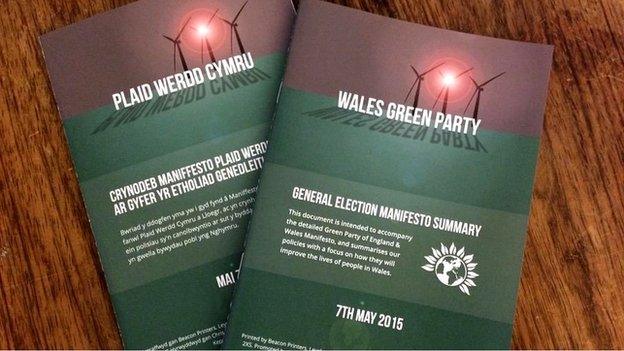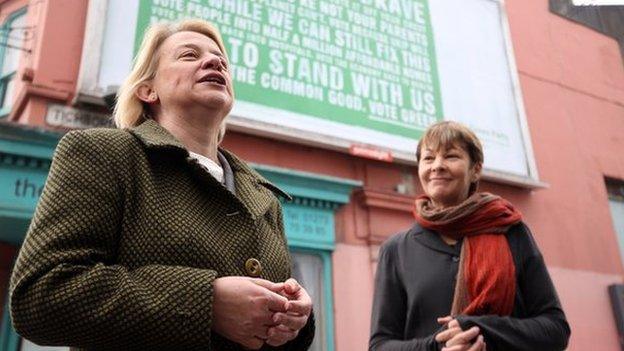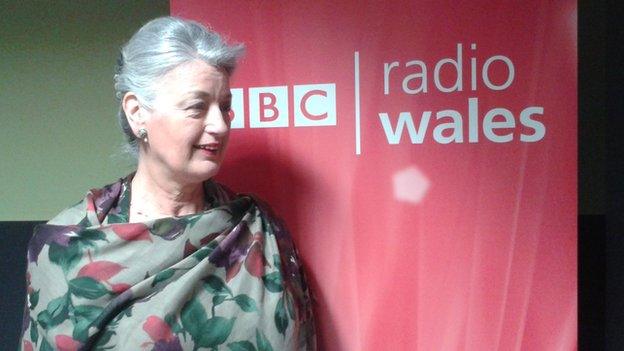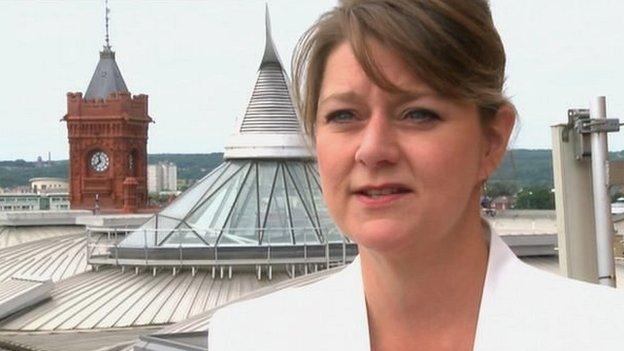Election 2015: Greens call for 'peaceful revolution'
- Published
Pippa Bartolotti says growth for its own sake is 'completely wrong'
The leader of the Wales Green Party has urged undecided voters to back them in a "peaceful revolution".
Pippa Bartolotti said climate change and closing the gap between rich and poor were the top priorities, as she launched the party's general election manifesto in Cardiff.
Wales had been an "optional extra" for UK governments, she added.
With 35 candidates in Wales, the party said more people than ever before would have the chance to vote Green.
Deputy leader Anthony Slaughter claimed there had been a "fantastic surge" in party membership.
Ms Bartolotti said it was a manifesto for a "green and just society", and an economy that worked for "the common good".
A "Robin Hood tax" on financial transactions would help raise a target of over £700bn - higher than the entire current income tax take for the UK - to be spent on improving public services and creating thousands of new green jobs.
Lower growth would also benefit the country, Ms Bartolotti added.
"We can have a peaceful revolution in the UK and still reduce the deficit to 1%," she said.
The Greens currently have seven community councillors in Wales, but no assembly members, Welsh MPs or MEPs.
However, Ms Bartolotti was "confident" they would win three seats at the 2016 assembly election.


Green priorities
Increase investment in renewable energy and energy efficiency, creating thousands of clean, green jobs
Make the minimum wage a living wage
"Robin Hood" tax on financial transactions
Split investment or "casino" banking from high street banking
Citizens Income for all, to reward work rather than wealth

Analysis by Vaughan Roderick, BBC Welsh affairs editor
In many ways the green movement in the UK was born in Wales with initiatives like Machynlleth's Centre For Alternative Technology, exploring ideas that have since entered the mainstream.
The Green Party in contrast has always struggled in Wales, failing to develop the sort of branch structure and local government presence that exist in parts of England.
Part of the reason may lie in Plaid Cymru, who have attracted support from many environmentally-minded voters, particularly in rural Wales.
An attempt by the party to strike a deal with Plaid did lead to the election of Cynog Dafis as a joint Plaid/Green MP in Ceredigion in 1992, but little else came from the partnership.
The party's best hope is to emulate their Scottish sister party and enter the Welsh assembly via the regional list system. A good result this year might provide a platform for the 2016 assembly election.
- Published14 April 2015

- Published10 April 2015

- Published14 April 2015
